“Before I learnt about microgreens farming, we struggled with low yields on our farm,” says Kuldeep Singh, a 38-year-old farmer from Ferozepur, Punjab. “We used to grow cauliflower, wheat, and other traditional crops, but no matter how hard we tried, the land was not giving us enough. We could only harvest so much with the same space, and it was hard to make a living.”
His story is similar to many farmers across India, where limited resources and small land holdings often present a significant challenge. For years, he and his father struggled with low yields on their small farm.
However, a chance meeting with Mohit Nijhawan at Krishi Vigyan Kendra (KVK), who has built a successful business in microgreens farming, opened a new door for him.
For Mohit Nijhawan, from Chandigarh, the corporate world was all he knew for over two decades. He had established a successful career in the pharmaceutical industry and was serving as the regional head at Sanofi-Genzyme in 2020. But as he rose the corporate ladder, he had to shift his focus to the health issues that were unfolding in his own family.
“My mother-in-law was diagnosed with stage-four cancer and expired just eight months later. Then, my sister-in-law also succumbed to cancer. It was like a heavy cloud hanging over our family,” the 46-year-old tells The Better India.
“Soon after, I found out my brother was diagnosed with renal cell carcinoma (RCC). He had to undergo nephrectomy, and because he got the treatment at the right time, he is fine now. It made me realise that lifestyle diseases, like cancer, are often linked to what we eat. The market is loaded with chemically-laden food.”
His corporate life, once fulfilling, now felt out of place. “I spent 20 years working in pharma, but I needed to do something that matched my moral values. Something that could help people live a healthier life. That is when I thought about food and its role in our health,” the entrepreneur shares.
His introduction to microgreens dates back to 2011, when he met with a researcher from Johns Hopkins University. “We discussed how lifestyle diseases could be combated through healthier and more sustainable living, and one thing led to another. We started discussing microgreens and I was intrigued to know about their benefits, but it took years for me to act on it,” he says.
Table of Contents
From pharma to farming: Only to grow chemical-free microgreens
After seeing his relatives struggle with health problems, and with encouragement from doctors who spoke about the dangers of chemically-laden foods, the former corporate professional made a radical decision. In December 2020, he resigned from his senior position in the pharmaceutical industry and decided to restart his career with a new venture.
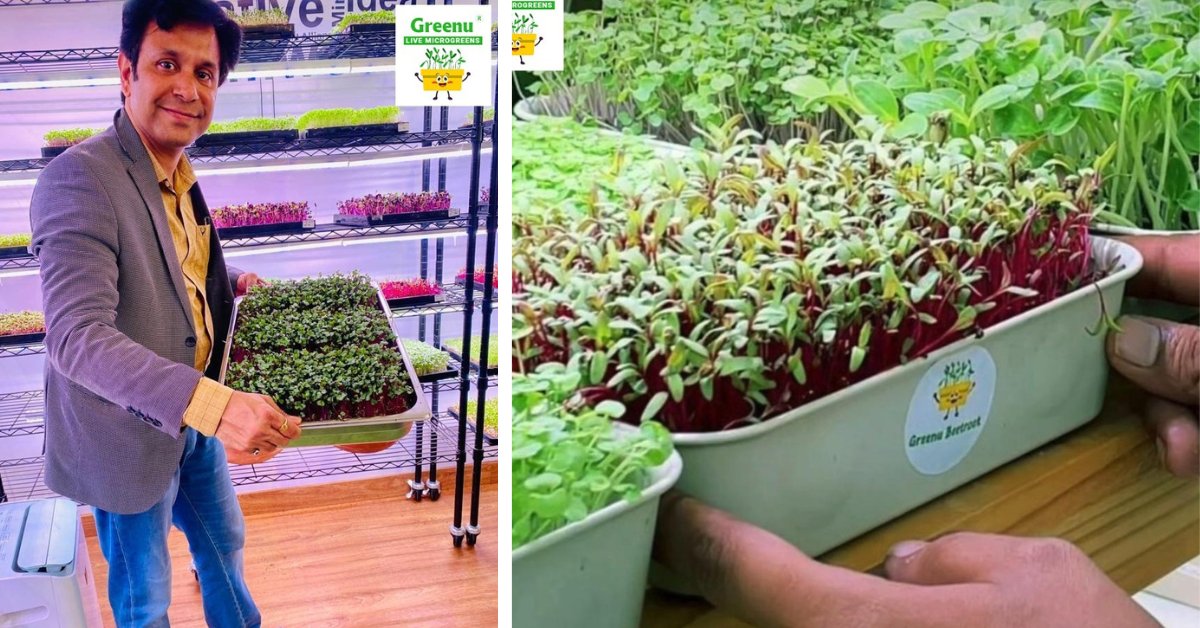
“I came across several research papers on microgreens and their health benefits. I learnt that these tiny seedlings, with just two cotyledon leaves, pack forty times more nutrients than their mature counterparts. This made me realise I could contribute to society by providing a healthier and chemical-free food option that could improve both wellness and fight illness,” he explains.
The entrepreneur launched his first venture in January 2021 with a friend. But things did not go as planned. “After 14 months, I realised I had been duped,” he admits. “It was a tough blow, both financially and emotionally.”
His family urged him to return to the corporate world for financial stability, but he knew that his purpose was far greater than monetary gain.
With even stronger determination and fewer resources, he restarted his venture from scratch in May 2022, founding Embryonic Greens (Opc) Private Limited and launching his microgreens brand, Greenu. He had just Rs 30,000 in savings, and with that, he rented a small 100 square foot space in his hometown. He spent the rest of the money on the setup, like investing in one rack, trays, 21 varieties of seeds, grow lights, and an air conditioner. “I had no investors or big funding in the initial days,” he says.
No internet, this entrepreneur chose to market his product by visiting people personally
In the early days, it was not easy to convince people and market the microgreens that the entrepreneur was growing. He went door to door, selling his produce to local restaurants and hotels. “I didn’t even know how to explain what microgreens were to people. It was challenging to convince them that these tiny greens could be packed with so much nutrition,” Mohit admits.
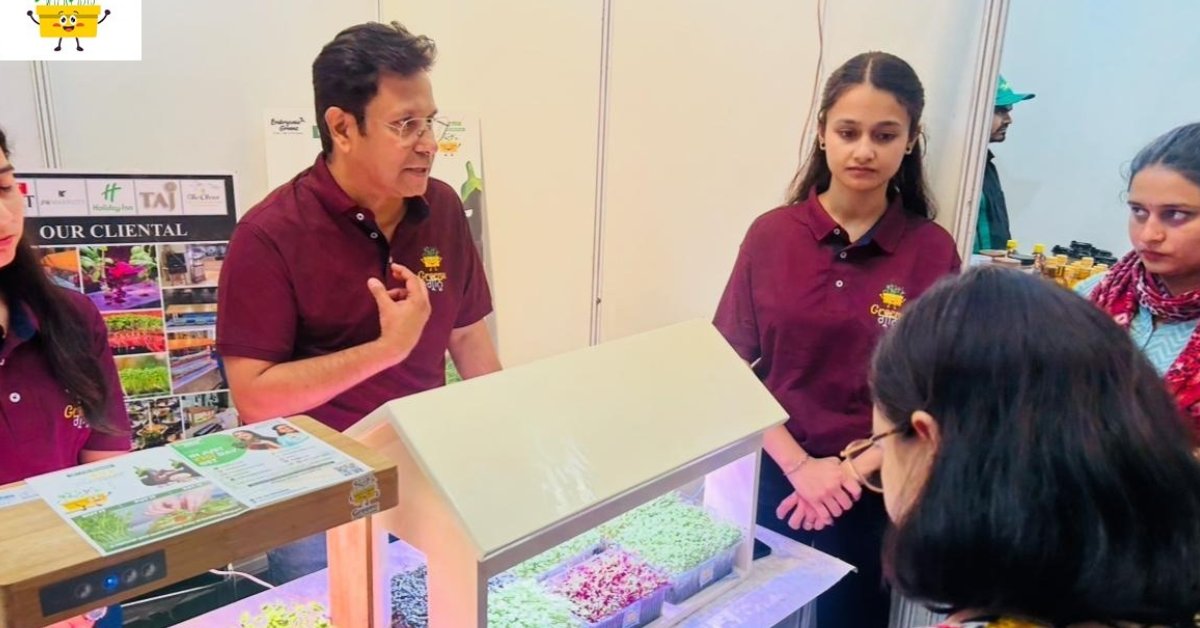
His business started to grow after he explained to everyone why these miniature vegetables are nutritious. One of his first customers was an oncologist based in Chandigarh. After trying the microgreens, he became a vocal advocate for the health benefits of these tiny plants.
“The oncologist told me that microgreens could make a difference not only for his patients but for anyone seeking a healthier lifestyle,” the entrepreneur says. This feedback gave him the confidence to push forward.
Dr Jatin Sarin, a senior consultant in oncology based in Chandigarh, explains, “Cancer is increasingly recognised as a lifestyle disease, with poor dietary habits playing a major role. Our food today is often packed with chemicals and has fewer essential nutrients. Microgreens, however, are a different story. These young plants, which are harvested after the sprout stage, are packed with micronutrients and offer a wealth of health benefits. They can be a valuable addition to a patient’s diet, complementing conventional treatments like chemotherapy and radiotherapy.”
“Microgreens are rich in vitamins, minerals, and antioxidants, making them a great choice for anyone looking to boost their overall health and well-being. I have included them in my diet and have noticed an improvement in my energy levels and overall vitality. Their nutritional density makes them an ideal food for maintaining health, preventing illness, and promoting a healthier lifestyle for everyone,” the oncologist adds.
For Kuldeep Singh, learning about microgreens farming proved to be beneficial for gaining profits. “When I met Mohit at the Krishi Vigyan Kendra (KVK), he was giving a talk on modern farming techniques,” the farmer recalls.
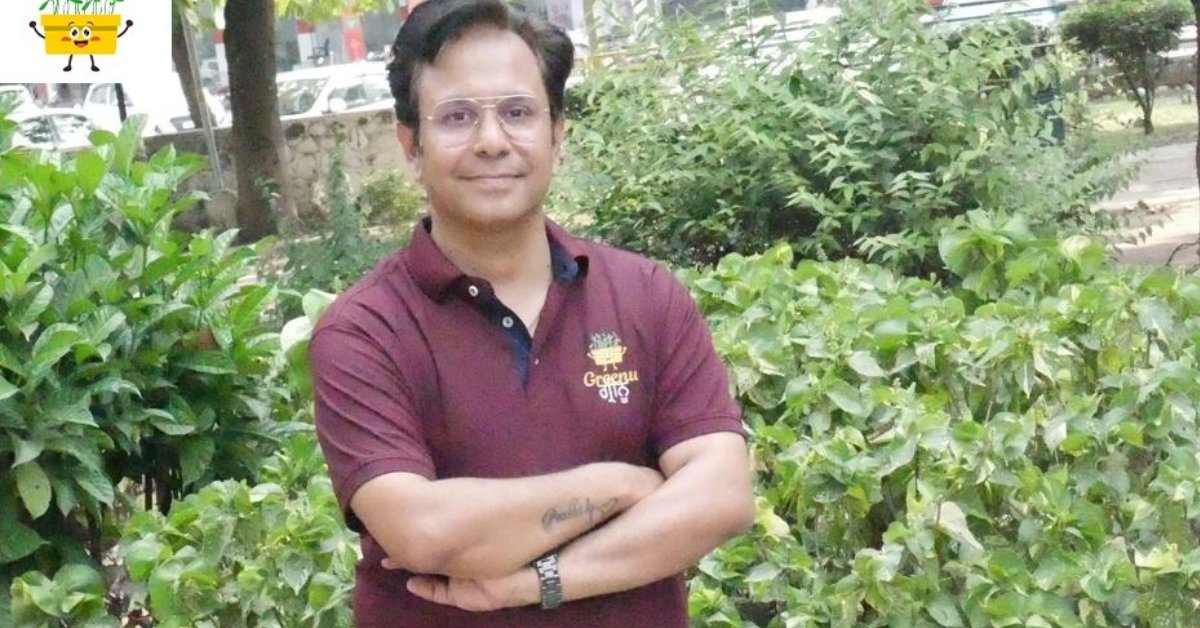
“At first, I did not think of attending it, but what he said about using less space and water caught my attention. We were always looking for ways to improve our yields with the limited land we had, and his techniques seemed like the solution we were searching for.”
Since he has shifted to microgreens farming, the farmer’s hard work and learning have seen a positive result. “Before, we could grow 6,500 cauliflower bulbs in 5 kanal of land. After learning from Mohit, we now produce over 20,000 bulbs in the same space,” he says proudly. The method also helped the farmer to increase his income. “Microgreens farming allowed us to diversify, and now we are producing different seeds like cabbage and radish for Greenu, which has opened up a new stream of income,” he adds.
Through his training initiative, the 46-year-old has taught over 300 farmers how to use minimal space to grow these high-value crops, helping them earn more with fewer resources. He also came across the incubation centre in Hisar, which is part of the government’s RKVY Raftaar scheme. This year, the business received support and funding through the programme.
Tiny greens, big impact: How Greenu expanded to growing over 75 varieties of microgreens
The Greenu entrepreneur believes that the beauty of microgreens farming lies in its simplicity and efficiency. “I started my venture by selecting high-quality and non genetically modified (non-GMO) seeds. I source mine from Krishi Vigyan Kendras (KVK), and make sure they are organic,” says Mohit.
These seeds are sown in sterilised growing media, like cocopeat or coco coir, in trays. The microgreens are watered with a minimal amount of just 30 ml of water per tray daily. He does not use any chemicals or pesticides in his farming and only believes in following organic methods.
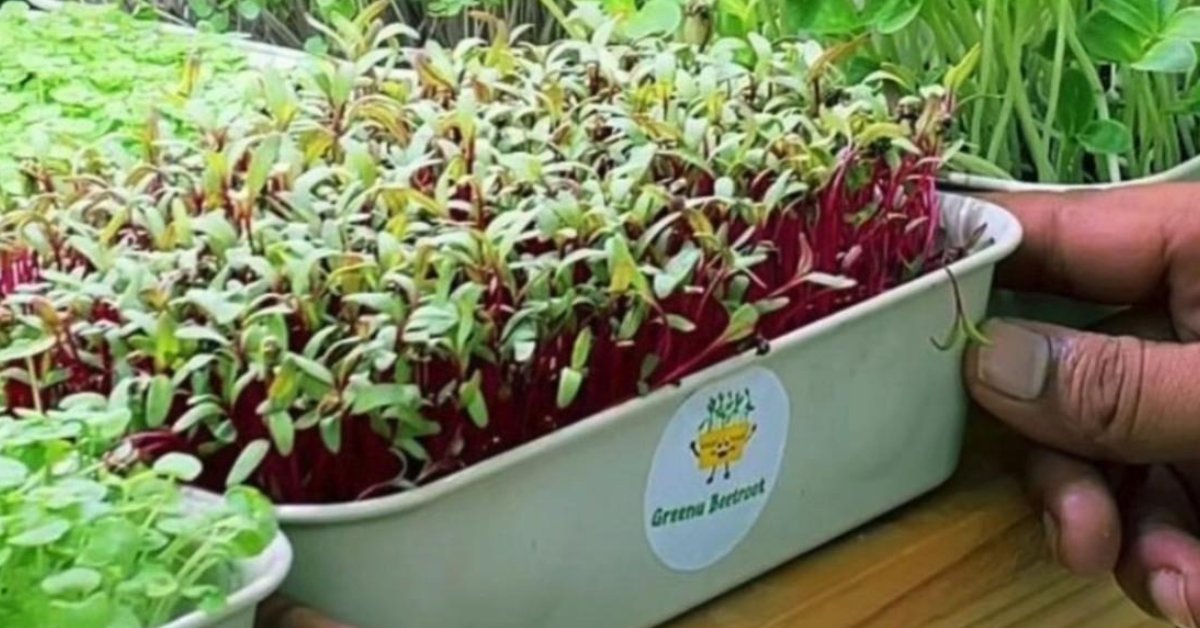
Within seven to 10 days, these greens are ready to be harvested. But the entrepreneur’s approach is unique as he often sends the microgreens out to customers in their live state, with roots intact.
“This makes sure they retain their nutrients for longer. Restaurants, hotels, and the end customers realise the benefits of this because they get the fresh products,” he explains.
The entrepreneur started with just 21 varieties of seeds, but now he grows over 75, including broccoli, radish, mustard, and even millet microgreens, which are rich in calcium and vitamin B12, in a 500-square-foot room.
“Our business has grown since 2022, and is now generating a monthly revenue of over Rs 12 lakh, with 6,500 trays sold each month. Each tray is priced at an average of Rs 200,” he says.
He also focuses on training and empowering people by charging a minimal fee of Rs 149. His goal is to equip farmers and people across India with the tools to grow microgreens organically, eventually increasing their income and improving their health.
“I want to change the way people think about food and health.”
“I teach people that they don’t need large plots of land or expensive equipment to start. With a considerable investment of around Rs 3 lakh, they can set up a small-scale microgreens operation. They can set up three racks, along with air conditioning, seeds, cocopeat, and coco fibre, to grow microgreens in a 100-square-foot room,” he says.
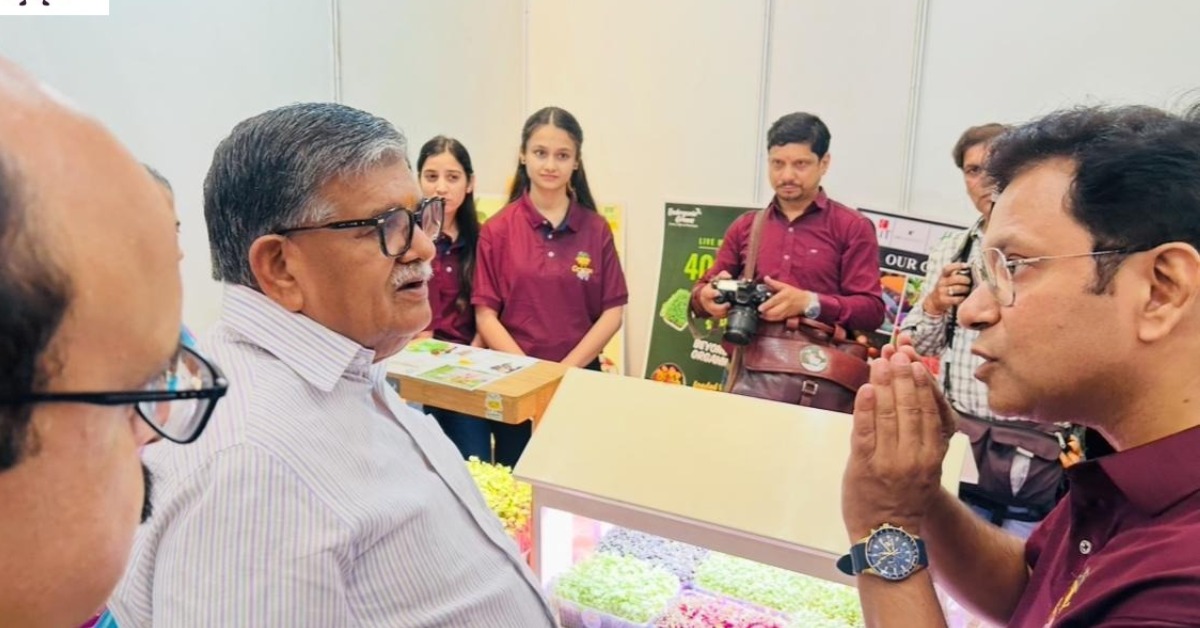
Raghvinder Kamble, from Hubli, Karnataka, runs a newspaper agency, and he credits the Greenu founder’s training for giving him the confidence to start his own microgreens operation. “I had always wanted to contribute to the agricultural sector and follow organic farming, and when I came across Mohit’s training sessions, I knew it was my chance,” he says.
Today, the newspaper agency owner runs a small-scale operation, producing microgreens at home and selling them locally. “The training has changed my perspective on farming. I have learnt to use modern techniques and organic resources to build a successful microgreens business,” he adds.
Through his company, Greenu, the entrepreneur says, “I want to change the way people think about food and health. I want to inspire others to take control of their health by growing nutrient-dense food in an organic way.”
From being a corporate professional to a champion in organic microgreen farming, Mohit’s journey speaks despite setbacks, including betrayal by a close friend and initial resistance from family to start a business. His commitment to organic farming kept him focused on his goal. “Every tray of microgreens sold represents more than just a business transaction. It is a step towards promoting a healthier future for both farmers and consumers,” he concludes.
Edited by Vidya Gowri; All pictures courtesy Mohit Nijhawan
Source Link: thebetterindia.com
Source: thebetterindia.com
Via: thebetterindia.com



























